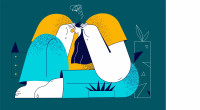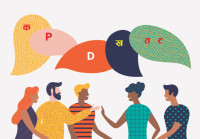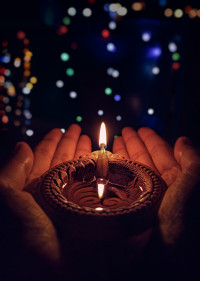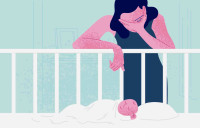As it is
On schooling, class and basic divisions
Can we revisit schools as a space to rebuild communities?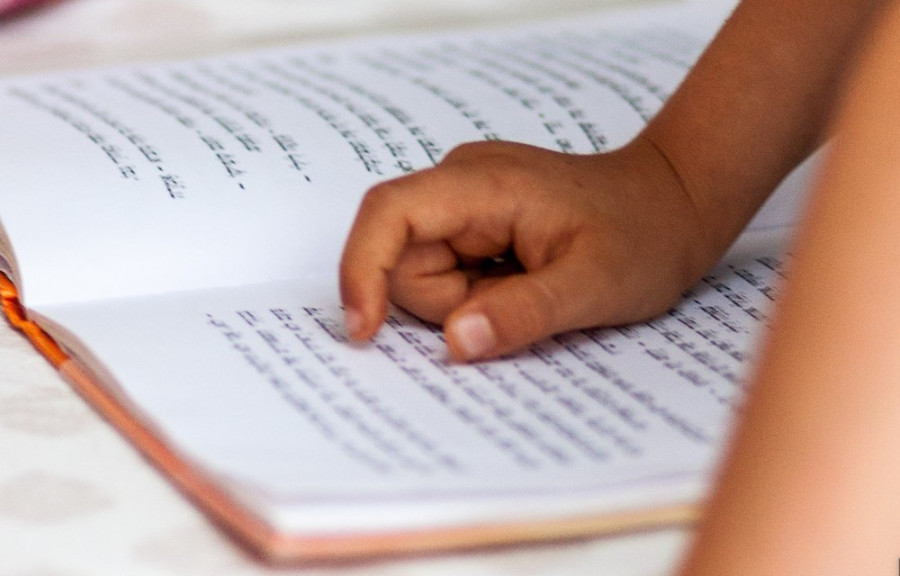
Ayushma Regmi
How memories of preschool still bring about feelings of terror! Somehow, even as tiny as they were, kids had caught a sniff of the social stratifications, class hierarchies, of civilised and partially civilised beings, of the clean and the physically dirty—all of which mark the larger society’s attitudes and intolerances towards people unlike themselves. Even barely in school, children of the socially privileged, upper class, civilised, sanitised and pretty were able to locate the ‘other’ in the snotty-nosed, unclean.
I remember how far I used to find myself, even physically, from the queen bee. Slick straight hair combed neatly into pigtails or ponytails, dressed in the sharp folds of the perfectly pleated navy blue skirt and sparkling, polished black Mary Janes. Others who weren’t quite like her, but still better off, hovered around her, tending to her every need during playtime. And I was far away.
Mother would fold a handkerchief into a broad square and pin it to my chest with a safety pin—every day, a bright piece of cloth dangled from my shirt. It was where I was to wipe my nose and anything that dribbled from it. Maybe that gave me away? That I needed cleaning up anyway, and that the paraphernalia was so brightly on display. Perhaps there was more. Maybe somewhere within me I still carried the stink of poverty and the ignorance my father tried to abandon when he left his village home at 14 to make an educated, sanitised, civilised, pretty life in the city.
Even being born in the city and brought up here could not remove me of my ancestral stink. Maybe that’s what queen bee and her minions could still smell on me, no matter how faint the smell. Kids are so smart these days, adults throughout time have been prone to say. The playground looked so big back then. I found myself far, far away, always—an other.
And thus was my slow and steady initiation into a shame that denoted much of life, during daily crossings in and out of elite institutions and an average home. What did I know of what was causing this feeling of shame back then? No amount of washing or cleaning or civilising or pruning was going to rid me of what I was learning to abhor. I was the source. Carrying the original shame.
An odd duckling, I did not do right by school. I put my emotions on my face, in my body. The teachers did not know what to do with me. And so, education—elite education—as refined as it could be, felt coarse on the skin. I wanted so much—love, recognition, reciprocation, safety, security, warmth, camaraderie. My body was perpetually charged with emotions, discharging emotions every time I was sad, joyous, thrilled, distressed, confused. It dumbfounded them. Trained as they were in an internationally acclaimed pedagogy, they had learned to take circuitous routes, laden with ritualistic role playing of teacher, educator, mentor and authority so direct contact became inadmissible.
For 11 years, apart from a few rare exceptions, school meant daily encounters with cutting edge pedagogy and certified expertise. Abstract nouns left little room for people to encounter real people. My needs buried within, unfulfilled still, festered into ugly, sore wounds while we continued to perpetuate the exchange of absence under intellectually lofty circumstances.
Unlike in preschool, there were surprisingly no coalitions here, no coagulation of people forming groups, cliques. Children also took circuitous routes, laden with ritualistic role playing of friend, best friend, best friend forever, so that direct contact became impossible. It got very lonely. Being part of school, meeting, greeting, sharing space, sharing time, and yet being separate, left me feeling far, far away.
These friends were slicker, their objects shinier, their parents classier. For a group of children so readymade, what use is education? For me, I had a stink to remove, a stink that made me look away from my father’s older brothers, and their families, many of whom had only recently moved into the city. But the more I tried, the more I slipped. Like when the ‘bear’ spoken too quickly came off as ‘beer’. When children enter school so readymade, meaning is made in scrutinising, in sniffing, in discovering, in labelling. For some, learning is in bearing the torch of the status quo. For others, it is in breeding shame over ridiculously insignificant nothings. Over bears and beers.
When the stink had been overwhelmed by the perfume of cultured society, when the right music had been listened to, right books read, right knowledge gained and the right amount of conversing and winning of eloquent arguments in English been achieved, what did it mean to burst the school bubble and enter the wider world? That earlier stink began to have a charm of its own, seen now from a different vantage point. What had school been teaching me implicitly all this while? I became cautious—of schools, of schooling, of socialising, of civilising. My mind was full of questions, mouth full of questions, complicated questions, uncomfortable questions, unanswerable questions.
What does it mean to return to education, to schools now, to hover on the margins, again? This time, trying to see if new things can surface from the same old ingredients. Is contact possible? Can community be built around the school space? Can colleagues become more than colleagues? Can people find themselves in this space, can people find other people who are real, throbbing with life, even with the unease and the joy of it? Can we hijack this space and use it for meaning making at the level of individual, at the level of community? Can it offer itself for self-transformation, societal transformation, for unschooling?
School, it is full of the possibilities of subversion. Teachers who have become mine. Colleagues whom I’ve appropriated from the institution so we can think, reflect, open up to one another, speak, share. There are multiple presences here, presences initiating, responding to other presences, making connections, finding beauty in the ugly stink. Making meaning out of nothing but our bare bodies, our inadequate selves. Affecting one another, being moved by one another, forging connections. It’s comforting, finally, knowing we are intertwining, tying knots into each other. If anyone is about to fall, we are there, to hold and support.
Together we sit with the unknown, dwell in the unmeaning, grow comfortable in the silence. Sometimes there’s the regular training, the professional development, but often there are opportunities for friendship, there is healing. Something is being healed. Are we healing as individuals? Or as individuals, in being healed, are we also healing society?
Schooling resists on the onset, thinks of itself as rigid and inflexible, but slowly, eventually yields. Submits to the natural side in itself like a young sapling that crawls out of even the toughest concrete to reach up to the sun.
Regmi is a Kathmandu based writer and educator. The writer tweets @ayushmaregmi




 17.9°C Kathmandu
17.9°C Kathmandu
